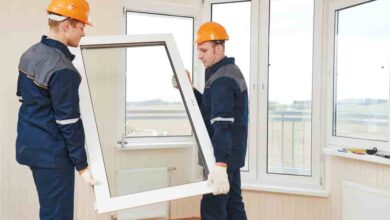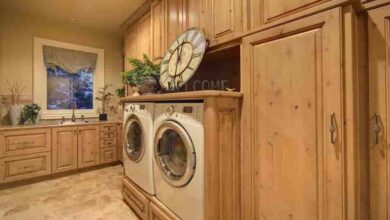How Much is a New HVAC System?
Are you wondering about the cost of a new HVAC system? Perhaps you’re even curious about how you can get a free HVAC system. At the same time, it may seem like a stretch; programs and incentives sometimes offer HVAC units at no cost, particularly for low-income households or energy-efficient initiatives. This guide covers vital price factors such as home size, system type, and extra features and will provide insight into how can i get a free HVAC system. Helping you make an informed choice that fits your budget is our goal. Let’s explore the costs associated with different HVAC options and dive into the possibilities of reducing those costs—potentially to zero.
Factors That Affect The Cost of a New HVAC System
Several key factors should be considered when evaluating the cost of a new HVAC system. These include the size of the system, the type of system, the quality of the system, and the installation costs. By evaluating these factors, you can better understand how much a new HVAC system will cost for your needs.
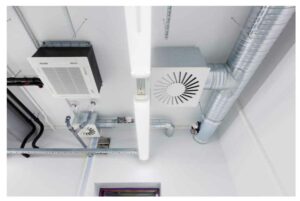
Size of the system
To ensure the perfect climate control in your home, it’s important to consider replacing your HVAC system with one that best suits your needs. The size of the HVAC system is crucial and should be determined by the square footage of the area it needs to heat or cool. Choosing a system that is too small can cause it to struggle to maintain a comfortable temperature in your home, leading to inefficiency and discomfort.
Conversely, opting for a system that is too large can cause it to cycle on and off more frequently than necessary. This not only leads to unnecessary wear and tear but can also result in higher energy bills. To avoid these pitfalls when you replace your HVAC system, it’s essential to have a professional HVAC technician conduct a load calculation before making a decision.
This calculation is a critical step in the process to replace HVAC system, taking into consideration various factors such as insulation quality, window types, and the overall layout of your house. By doing so, you will ensure that you select an HVAC system that is tailored to your home’s specific requirements, thus guaranteeing optimal comfort and enhanced energy efficiency for your living space.
Read More:- How to Balance HVAC System?
Type of system
If you want the perfect fit for your home, consider what heating and cooling setup will work best for you.
Several types of HVAC systems are available, each with advantages and disadvantages.
One option is a split system consisting of an outdoor and indoor unit connected by refrigerant lines. This versatile system can be customized to fit your specific needs.
Another option is a packaged system, which houses all the components in a single outdoor unit. This type of system is more compact and can be a good choice if you have limited space.
Finally, ductless mini-split systems are ideal for homes without existing ductwork. These systems consist of an outdoor unit and one or more indoor units that can be mounted on the wall or ceiling. They provide individual temperature control for each room and are energy-efficient.
Consider your home’s layout, budget, and preferences when choosing the right HVAC system.
Quality of the system
One crucial factor to consider is the overall performance and reliability of the chosen heating and cooling setup.
Regarding the system’s quality, you want to ensure that it’s built to last and can handle the demands of your home or business.
A high-quality HVAC system will provide efficient heating and cooling, requiring fewer repairs and maintenance.
It’ll have advanced features and technology that improve energy efficiency and indoor air quality.
Investing in a reliable system costs more upfront, but it’ll save you money and headaches in the future.
So, when choosing a new HVAC system, prioritize quality and durability to get the most value for your money.
Installation costs
You must consider the costs involved when installing your heating and cooling setup.
HVAC installation costs can vary depending on several factors. The size of your home, the complexity of the installation, and the type of HVAC system you choose all play a role in determining the overall cost.
On average, you can expect to pay between $5,000 and $10,000 for a new HVAC system installation. This estimate can vary depending on your specific needs and the contractors in your area.
Getting multiple quotes from reputable HVAC companies is essential to ensure you get a fair installation price.
Whileront costs seem high, but investing in a quality installation can save you money in the long run by improving energy efficiency and reducing repair and maintenance costs.
Different Types of HVAC Systems and Their Costs
This session explores different types of HVAC systems and their costs.
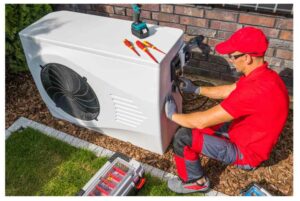
You consider a central air conditioning system, a popular choice for cooling larger homes.
Heat pumps are also an option, as they can provide both heating and cooling functions.
Furnaces and mini-split systems offer their benefits and price points.
Central air conditioning systems
Central air conditioning systems can be a game-changer for keeping your home cool and comfortable during those scorching summer months. With a central AC system, you can enjoy cooling throughout your house, eliminating the need for multiple window units or fans. However, to achieve maximum efficiency and comfort, it is crucial to maintain a balance HVAC system.
The cost of a new central air conditioning system can vary depending on factors such as the size of your home, the brand and model you choose, and any additional features or upgrades you opt for. On average, you can expect to spend $2,500 to $7,500 for a new central AC system, including installation. However, it’s essential to remember that this is just a general estimate, and prices can vary significantly based on your specific needs and location.
To ensure you’re getting the most out of your investment, it’s important to have a balanced HVAC system. This involves fine-tuning your central air conditioning to distribute air evenly throughout your home, avoiding hot or cold spots and ensuring that your system runs efficiently. This balance not only enhances comfort but can also reduce energy costs and extend the life of your HVAC system.
It’s always a good idea to consult a skilled HVAC technician who can assess your home and provide an accurate cost estimate, as well as advice on how to properly balance your HVAC system. A well-balanced system will provide even cooling and operate at peak performance, which is key to enjoying your central AC system’s full potential.
Heat pumps
You’ll be amazed at how a heat pump efficiently cools and heats your entire home, providing year-round comfort and savings on energy bills.
Unlike traditional air conditioning systems that only cool your home, heat pumps work by transferring heat between the inside and outside of your house.
In the summer, they extract heat from inside your home and release it outside, effectively cooling your living spaces.
During Heatreverse, extra during the colder months, heat from the outside air and transferred inside to warm your home.
This dual functionality makes heat pumps incredibly versatile and efficient. They’re also known for their energy efficiency, as they can provide up to 4 times the energy they consume.
So not only will a heat pump keep you comfortable, but it’ll also help you save on your energy bills.
Furnaces
Furnaces are an essential component of a well-functioning home heating and cooling system. Several factors can affect the price of a new HVAC system, including a furnace.
The cost of a new furnace is based on your home’s size, the type you choose, and the efficiency rating. A furnace costs $2,500 to $6,000, including installation. Furnaces with advanced features and higher efficiency ratings tend to be more expensive.
It’s essential to consider the long-term energy savings when deciding on a furnace, as a more efficient model costs more upfront but can save you money on your energy bills in the long run. It’s always recommended to consult with a particular HVAC technician who can assess your specific needs and provide you with an estimate for a new furnace installation.
Boilers
Boilers are a fantastic option for heating your home efficiently and comfortably. They provide a cozy atmosphere that you’ll love. With a new boiler system, you can enjoy consistent heat throughout your house without any cold spots or uneven temperatures.
Boilers heat water and then distribute it through pipes to radiators or baseboard heaters, creating a warm and inviting environment. One of the advantages of boilers is their energy efficiency, which can be more efficient than other heating systems, saving you money on your energy bills. Boilers have a longer lifespan than Thanes, making them durable and reliable.
When it comes to the cost of a new boiler system, it can vary depending on factors such as the size of your home, the type of boiler you choose, and any additional features or upgrades you opt for. You can expect to spend between $3,000 and $7,500 on average for a new boiler installation.
It’s essential to consult with a professional HVAC technician to determine the best boiler system for your home and get an accurate cost estimate.
Read More:- How Much to Replace HVAC System?
Mini-split systems
If boilers aren’t the right fit for your home, another option to consider is mini-split systems. These systems are becoming increasingly popular due to their energy efficiency and versatility.
Mini-split systems consist of an outdoor compressor unit and one or more indoor air handlers, which can be installed in different rooms or zones of your home. They provide heating and cooling capabilities, allowing you to control the temperature in each area.
Mini-split systems are known for their quiet operation and easy installation, as they don’t require extensive ductwork. The cost of a new mini-split system can vary depending on the size and number of indoor units needed, but on average, you can expect to spend between $3,000 and $10,000 for the equipment and installation.
Remember that additional factors, such as the complexity of the installation and any necessary electrical upgrades, can also affect the final cost.
The Cost of Installation
When you’re ready to upgrade your home’s HVAC system, you’ll be amazed at its transformation in comfort and energy efficiency.
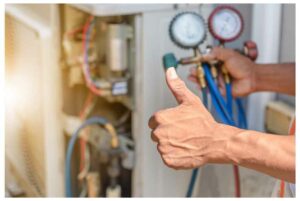
The cost is a crucial aspect to consider when installing a new HVAC system. The installation cost can vary depending on factors such as the size and complexity of the system, the type of system you choose, and the labor costs in your area.
On average, installing a new HVAC system can range from $3,000 to $8,000. This cost includes the price of the equipment, the cost of labor, and any additional materials or permits that are required.
Getting multiple quotes from reputable HVAC contractors is essential to ensure you get a fair installation price. Inquire about any warranties or guarantees offered with the system installation.
Investing in a new HVAC system can be a significant expense but worthwhile in the long run. It will improve your comfort and energy efficiency for years.
Conclusion
In conclusion, the cost of a new HVAC system is influenced by your home’s size, system type, and extra features. Get multiple quotes and consider the long-term savings from energy efficiency. Balance the initial investment against future cost reductions when deciding.


